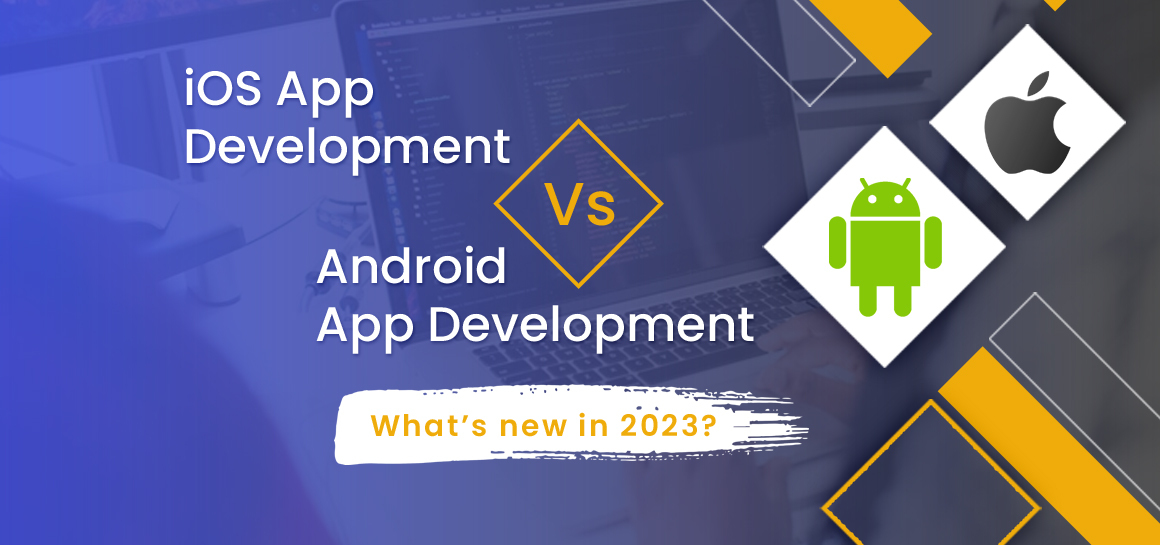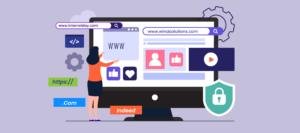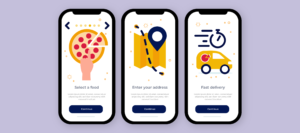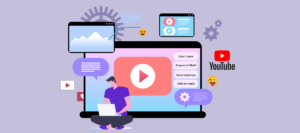iOS Development vs Android App Development – What’s New in 2023? (Biggest Differences)
About 5.11 billion people use cell phones worldwide, which is expected to grow over the next several years. The need for improved mobile applications from both enterprises and consumers will increase due to this trend, which will bring the iOS and android app development market to a high. Additionally, the average daily time spent using a smartphone is 3 hours. Thus, for mobile applications to remain relevant over time will accelerate their upgrading and updating processes.
Software engineers sometimes struggle with the decision of whether to develop for iOS or Android. Despite having comparable architectures, the two systems still employ various development and maintenance strategies. Not only in terms of development but also terms of design and marketing strategy, the two systems are distinct from one another.
In this blog, we’ll discuss the pros & cons, the main differences of iOS development vs android app development and more. Let’s dive into it!
Android App Development
The most popular operating system in the world is Android. Android cellphones’ availability and affordability have facilitated their expansion and reach.
Pros of Android app development
- Open System – In general, Android has access to some crucial functionalities that are limited in iOS. Developers adore this feature since it gives them more freedom and chances to create better things.
- Design – Google offers suggestions on design. In this method, even if you don’t have a lot of experience, you may develop a stunning layout and an excellent user interface.
- Fragmentation – A wide range of devices (with various hardware) can use a single responsive app.
- Publishing – It typically takes just a few hours for customers to be able to download and use your app when the development team submits the Android Package (APK) file.
Cons of Android app development
- Not versatile: It might be challenging for developers to accommodate various screen sizes, resolutions, and aspect ratios.
- Cost: The overall development cost increases due to the necessity to spend money on testing and optimization.
- Testing: Android app development has a wide range of end devices, so testing how well the application works on each of them takes time and money.
iOS Application Development
iOS was exclusively made for Apple goods like the iPhone and iPad, which has brought in a lot of money for Apple because it is widely used in developed nations. iOS operates on a closed-source platform that only Apple can utilize privately. As a result, the platform is more secure and has a very low probability of being hacked.
Pros of iOS application development
- Standard User Interface Design: Apple offers a complete UI design manual that makes it easy for developers to create applications.
- Benefits: People who use Apple products are known to be mainly devoted to their iPhone or iPad, which leads to higher spending on iOS application development. Apple has established a reliable brand strategy, keeping customers loyal to the company for years.
- Versatility: Nearly all Apple devices run the same version of iOS. Developers don’t need to spend time and resources making app versions for various devices with various screen sizes and resolutions.
Cons of iOS application development
- Cost: Xcode IDE, which is required for app development on iOS, is only available on Macs. The initial cost will increase if you don’t already own a Mac and Xcode.
- Stringent Publishing standards: When iOS applications development, developers must follow highly tight standards; else, the applications will be harshly rejected.
- Customization: Due to the stringent and uniform requirements, it is impossible to customize your mobile application to resemble everyone else’s.
Differences Between Developing iOS and Android
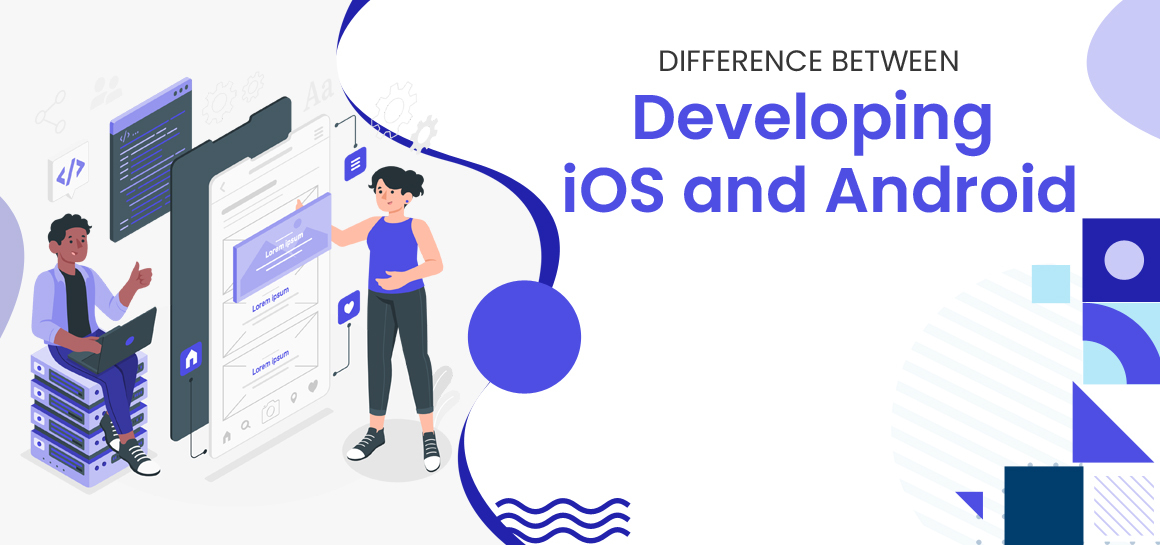
The two most widely used smartphone operating systems are Google’s Android and Apple’s iOS. Whether to create mobile apps for iPhones or Android devices, it’s the first step to choose the top app development companies.
Apps created for the Apple App Store and Google Play Store are different in several ways.
- When creating software for iOS versus Android, programmers employ distinct coding languages.
- Android apps and iOS apps have different financial requirements and maintenance requirements.
- Different mobile operating systems are popular depending on the country that one intends to target.
- Android has more excellent customization options than iOS, yet it may not always be more widely used.
Keep reading to learn more about the main differences between iOS development vs android app development.
| S.No. | iOS | Android |
| 1 | The initial launch of IOS took place on July 29, 2007. | Google’s initial launch took place on September 23, 2008. |
| 2. | Developed and owned by Apple Incorporation | Developed by Google and Open Handset Alliance and owned by Google LLC |
| 3. | Mobile phones, MP3 players, and tablet PCs are its target system categories. | Tablets and smartphones are its primary target system categories. |
| 4. | It is mostly written in Swift, Objective-C, C++, and assembly code. | It is written in a variety of languages, including C, C++, and Java. |
| 5. | Swift is mostly used for creating iOS applications. | Java and Kotlin are mostly used for creating Android applications |
| 6. | In 34 languages, iOS devices are available. | More than 100 languages are available for Android devices. |
| 7. | Compared to iOS, file transfer on Android is simpler. | In comparison to Android, iOS makes file transfers more challenging. |
| 8. | The voice assistant on iOS is called Siri. | In Google, there is Google Assistance. |
| 9. | Its kernel type is Hybrid. | Its kernel type is Linux-based. |
| 10. | Proprietary, APSL, and GNU GPL are the preferred licences for iOS. | Android has the GNU GPLv2 and Apache 2.0 licences, which are preferred. |
Are iOS Apps Easier to Develop Than Android Apps?
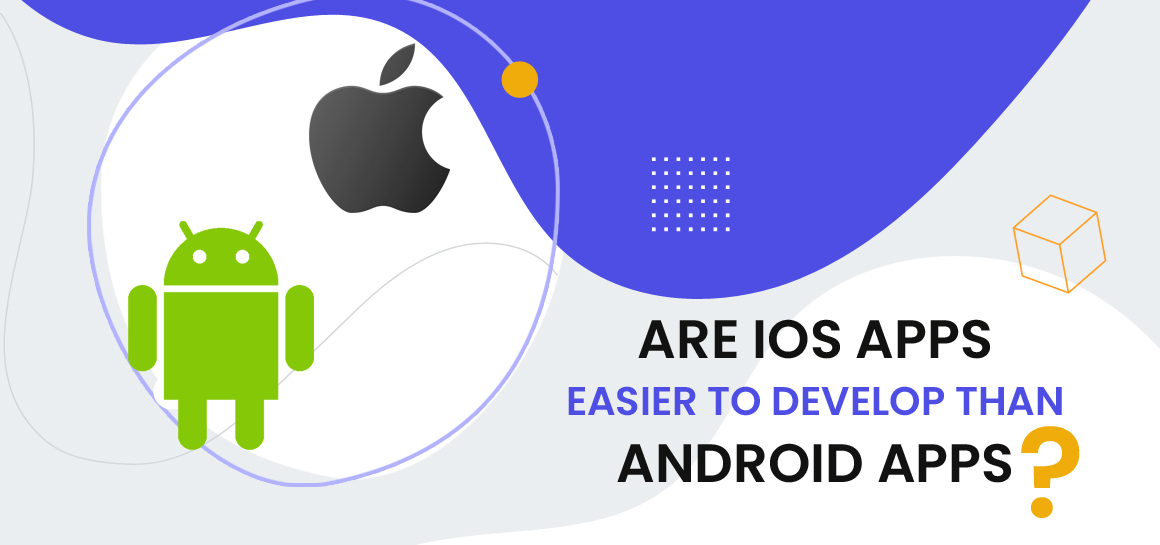
In general, app development on iOS is simpler to create for both beginner and experienced programmers. Compared to Android apps, iOS apps typically take less time to design and cost less money to maintain.
Android developers commonly utilize Java and Kotlin, but iOS developers use Swift, Apple’s native programming language. Swift is typically easier to use and requires less code work when developing native mobile apps. Making an app for iOS devices like the iPhone or iPad requires less code, which saves time and money.
Do iOS or Android apps make money?
Mobile apps are a fantastic way to make money. Both iOS and Android apps generate a lot of revenue:
- With a vast global audience and plenty of revenue potential, the Android market is quite profitable.
- Users can find a bigger market and higher profit margins in the Apple App Store.
Since its opening in 2008, the Apple Software Store has paid its app developers $155 billion in revenue. In comparison, just $80 billion has been made available to Android developers as of 2019.
Cost of Mobile App Development: iOS vs. Android
There is a widespread perception on the internet that iOS apps are more expensive than Android apps. We compared the price of iOS development vs android app development to see if this was accurate or not. According to Cleveroad, the average time required to construct a simple, medium, and complex mobile app is as follows:
- 300 hours for a simple app;
- 600 hours for a medium-complexity app;
- and 800 hours for a complex app.
The same source provides the following rates for Android and iOS developers in the US and Eastern Europe.
Average cost of Android app development:
| App Type | Average Cost |
| Simple App Development | $40,000 to $60,000 |
| Medium-complexity App Development | $60,000 to $150,000 |
| Complex App Development | from $300,000 |
Average cost of iOS application development:
| App Type | Average Cost |
| Simple App Development | $10,000 to $50,000 |
| Medium-complexity App Development | $50,000 to $100,000 |
| Complex App Development | $100,000 to $250,000 |
Regarding budgeting, Android OS is different because developers will need more resources to adapt apps to various screen sizes, but this is not a significant problem when developing iOS apps.
Wrapping up:
Deciding between android and iOS app development is difficult because each has benefits and cons. You must first evaluate elements like a business idea, money, time to market, and others before weighing the benefits and drawbacks of Android and iOS development. The critical thing in this situation is to decide what would work best for your project while putting personal preferences to the side.
It’s challenging to develop an app on your own, so it’s better to hire a reputable and experienced development company before beginning to create your mobile app. We at Pairroxz Technologies provide on-demand app ideas and develop numerous applications for both iOS and Android.
Excited to discuss your project? Contact us, and we’ll be pleased to assist you.

